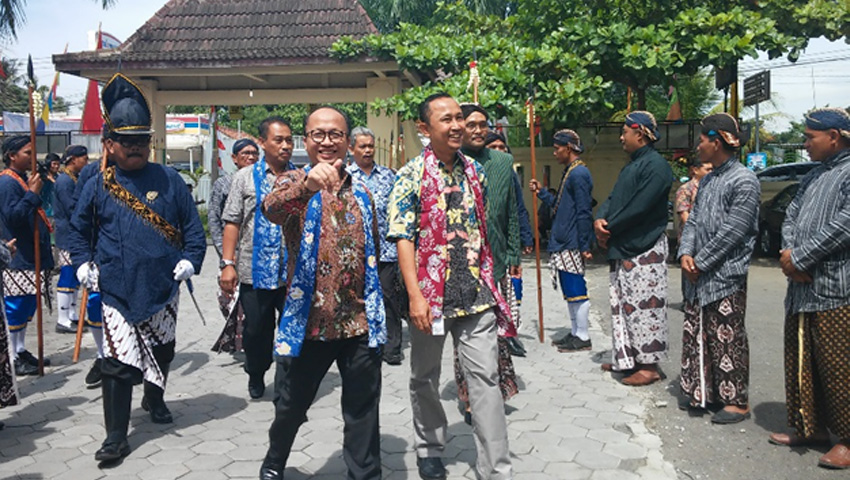Over the past year, KSI has supported knowledge communities on village development to address the lack of interaction between policy makers and knowledge producers–one of the systemic barriers of the knowledge sector. As one way to strengthen their policy influence and advocacy efforts, partner research institutionshave established a Forum Kajian Desa (Village Research Forum, KSI Update November 2016). In December, partners had a series of interactions with government agencies:
- Article 33 on Village Funds. Article 33 organised a public discussion on 6 December 2016 to present their recent findings on the obstacles in channelling, use of and alternative allocation formulation of village funds. Article 33 proposed a number of alternative formulations that can be used by the Government, depending on the objective to be achieved; the findings will be picked up by Kemenko PMK in monitoring the implementation of the village funds.
- Sajogyo Institute on the Impact of Village Eco-Tourism. In a workshop on 8 December 2016 with the Ministry of Villages (Kemendesa) and Bappenas, the Sajogyo Institute (SAINS) discussed the risk of communities losing their sources of livelihood and experiencing environmental degradation as infrastructure development for tourism expands in rural areas. Despite government agencies possibly having a different position than activists and researchers on these complex issues, participants during the workshop agreed that looking for evidence-based solutions to common problems is crucial and this can be done through better dialogue between government agencies, NGOs and the communities affected by policies.
- Forum Kajian Desa on BUMDesa. The Bappenas Director for Disadvantaged Regions, Transmigration and Villages, Dr Sumedi Andono Mulyo, is committed to holding regular discussions with the Forum Kajian Desa. The second round of discussions was held on 14 December 2016 at Bappenas to gain input on the current policies on village enterprises (BUMDesa) and village cooperatives. IRE-Yogyakarta, which has assisted several regions in establishing BUMDesa argued that single top-down models are not the best option, as each economic unit and village has different characteristics. AKATIGA and Puskapol UI likewise emphasised that there are many economic initiatives at the local village level and the decision of whether they would like to have BUMDesa, cooperatives or any other economic units should be decided by the communities themselves, based on their needs and identification of problems.
- Partners Celebrate Three Years of the Village Law. On 17-18 December 2016, KSI partner IRE Yogyakarta, with support from KOMPAK and KSI, hosted a two-day event to mark the three-year anniversary of the approval of the Village Law. Choosing the community hall at Pandowoharjo village in Sleman, Yogyakarta, as the venue, the event attracted hundreds of practitioners and activists on village issues. The talk show presented the Secretary General of the Ministry of Villages, Disadvantaged Regions and Transmigration (KemenDesa), Dr Anwar Sanusi; the Regional Representative Council (DPD) member, Akhmad Muqowam, who was also the chair of the drafting commission of the Village Law in 2013; and Bappenas Director of Disadvantaged Regions, Transmigration and Villages, Dr Sumedi Andono Mulyo. The event provided an avenue for village apparatus and local practitioners to engage in dialogue with national government representatives on regulation and implementation problems. The event also showcased several village enterprises from Yogyakarta, Aceh and West Nusa Tenggara as a way to disseminate good practices and inspire other villagers to develop their villages.






